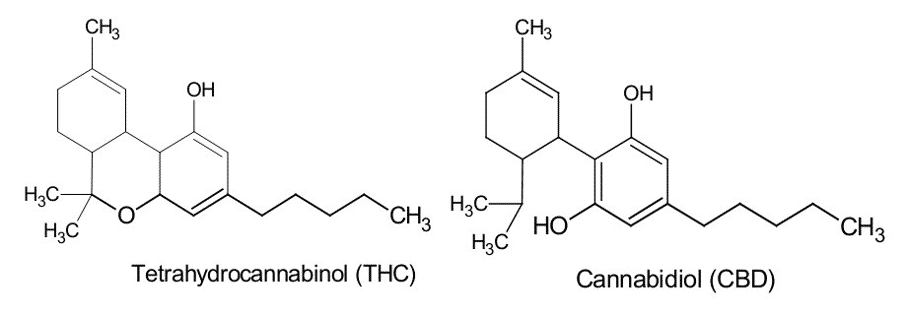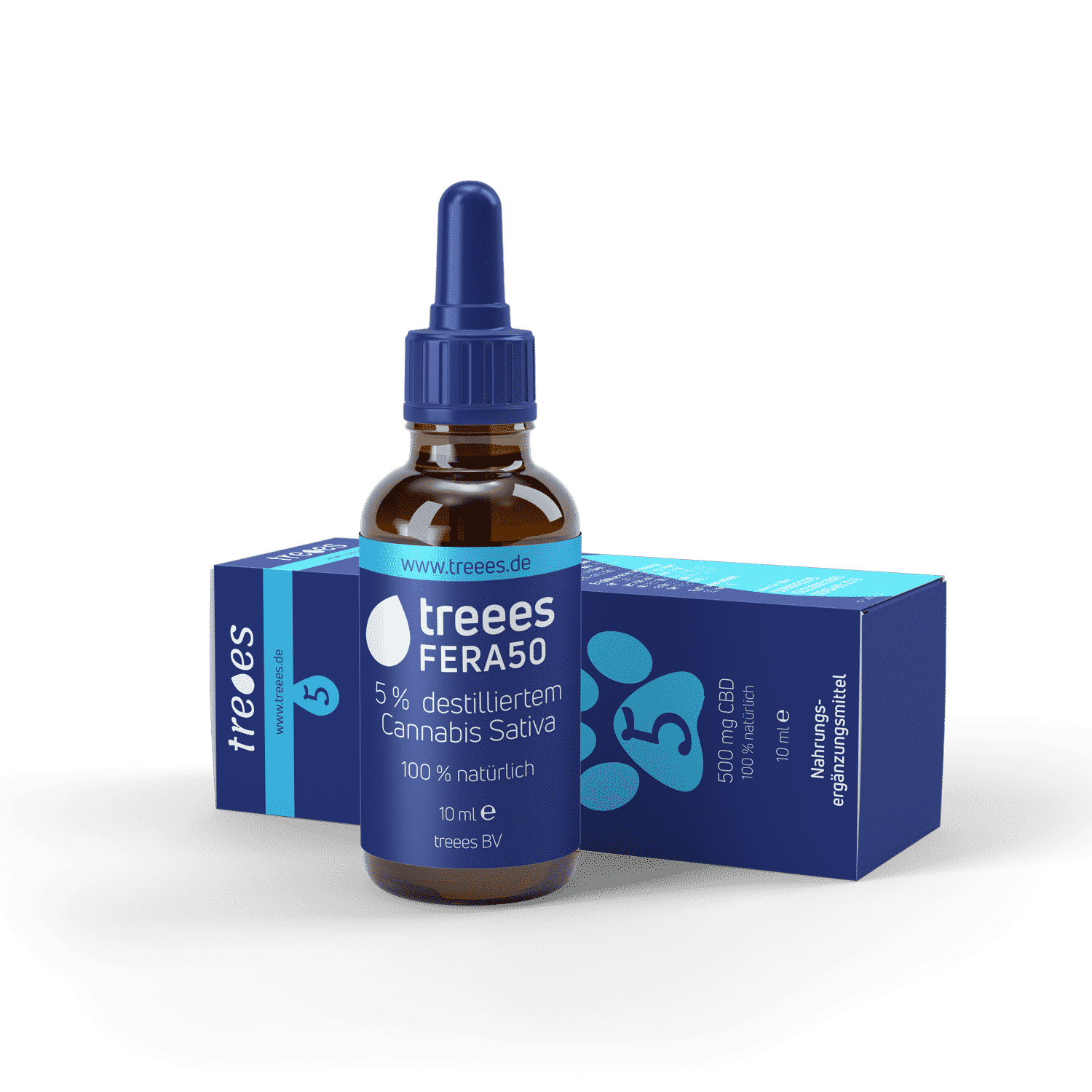Relaxed through the day with cannabis? 11 things you need to know about the CBD hype
Anyone who has ever felt the relaxing effects of marijuana will wonder why cannabis is illegal. Maybe because a population that is relaxed is unproductive? Whatever the case, cannabis still has a bad reputation, yet it is one of the world’s oldest crops ever. For at least ten thousand years, the fibers of the hemp plant have been used to make clothing, paper, food and fuel. The psychoactive effect of cannabis has also been known for more than 3000 years. But cannabis does not only make you high: For several decades, the effect of another active ingredient in cannabis has been studied: CBD is the name of the wonder stuff that is now on everyone’s proverbial lips. We answer the most important questions about CBD and its (side) effects.

1. what is CBD?
CBD is a cannabinoid from the female hemp and, along with THC, one of the main active ingredients of cannabis. Unlike THC, however, CBD does not have a psychoactive effect. Products made from CBD, for example CBD oil, also contain vitamins such as B1, B2 and E, proteins and various minerals such as potassium, calcium, magnesium, copper, iron, sodium, phosphorus and zinc.
2. What is the difference to THC?
Tetrahydrocannabiol ist der psychoaktive also berauschende Bestandteil von Cannabis, der das berüchtigte High produziert und zu einer psychischen Abhängigkeit führen kann. Je mehr THC in einer Pflanze vorhanden ist, desto geringer ist der CBD-Bestandteil. Da viele Menschen, die Cannabis rauchen, high werden wollen, kann das Verhältnis von THC zu CBD in einigen Cannabis-Pflanzen 250 zu 1 betragen, was zu einem krasseren High und schlimmstenfalls zu Angstzuständen und Paranoia führen kann.
3. how does CBD work?
CBD is said to work wonders. It is said to help with inflammation and inflammation-related pain, epilepsy, schizophrenic psychosis, stress, burnout, sleep disorders, migraines, nausea and vomiting. The list could go on forever. In short, CBD doesn’t get you high, it has relaxing effects on the body. CBD is even currently being tested to fight breast cancer, and CBD is also a component of a drug against multiple sclerosis. However, it is important to note that there are still no long-term studies that prove all these effects one hundred percent.
4. how fast does CBD work?
As with any active ingredient and with cannabis itself, CBD products work differently for each person. Here, especially the dose, the body weight and the area of application play a major role. In general, it is advisable to find out about the amount of CBD contained in a product before taking it and to start with a small dose to determine the effect on your own body. Many sites therefore advise starting with a dose of 25 milligrams of CBD per day. Professional advice on the intake of CBD is recommended.
5. why does CBD work so well?
Cannabis contains over 100 cannabinoids that act on the human body. The human nervous system is equipped with cannabinoid receptors to which the active ingredients can dock. These receptors are located in the central nervous system, the immune system, the digestive system and the reproductive system. For this purpose, the human body produces so-called endocannabinoids, which dock at the same receptors. Cannabinoids help with food regulation, fine motor skills, orientation and sensory perception. “And they may be the substances behind post-exercise euphoria,” according to the Netflix documentary “Explained.”
6. are there side effects? Who should not take CBD?
CBD is generally considered safe, but it can inhibit the effect of some medications. Therefore, those who take medications should consult a doctor beforehand. Other side effects can be a dry mouth, low blood pressure, drowsiness and sleepiness. Again, no long-term studies have yet been conducted on side effects, so it is not possible to make 100 percent certain statements.
7. Is CBD suitable for children?
So far, there have been few studies on the effects of CBD on children. In some studies of children with epilepsy and attention deficit hyperactivity disorder, taking CBD medications showed improvement in symptoms. In general, however, it should be taken under medical advice, because children are in the development stage and here, too, the consequences of CBD consumption are still largely unexplored.
8. Is CBD addictive?
No, even the World Health Organization (WHO) confirmed that in a comprehensive report (read here) at the end of 2017 that deals with the mode of action of CBD. In an additional article, the ECDD (Expert Committee on Drug Dependence) confirms that CBD is unlikely to be abused or creates addiction.
9. In what form can I buy CBD?
CBD is now available in countless products: you can of course continue to smoke it, or you can smear it on your body as a cream, eat it as ice cream or gummy bears, massage yourself in with oil, swallow capsules or mix hemp powder into your smoothie. In Germany, CBD is declared as a dietary supplement, so that you can buy CBD preparations not only in pharmacies, but now also in supermarkets, in drugstores such as Rossmann and dm or online in numerous shops. In some Spätis there are also non-psychoactive hemp flowers for smoking. Utopia reports that Lidl sells hemp in Switzerland and wants to develop Coca-Cola beverages containing cannabis.
10. Is CBD Legal?
Since 1996, farmers have been allowed to grow CBD-rich industrial hemp, which has a low THC content, which is mainly processed into renewable plastics, paper or clothing. CBD products with a THC content below 0.2 percent are legal and can be freely sold. In Bavaria, for example, Josef Bayer operates Germany’s first self-picking hemp field, as Vice reports. Nonetheless, growing cannabis plants that contain more than 0.2% THC is still illegal.
11. What happens if I am stopped by the police?
The purchase and possession of CBD products with a THC content of less than 0.2 percent is legal in Germany. German jurisprudence states that you must not have more than 0.1 grams of marijuana or hashish. In Berlin, the upper limit (as of October 16, 2017) is 15 grams, “if there is no danger to others.”



